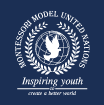First Committee
Disarmament and International Security
DISEC


This committee aims to create a more peaceful world. Talks in this committee center around reducing weapons in the world. It also identifies threats to peace and finds solutions to international security.
This committee believes the world can become stable through cooperation. Countries can protect their people better if they work together for peace. For example, this committee might discuss how to keep weapons from terrorists. Or, how less weapons can make the world safer. Also, countries talk about policing weapons and finding ways to reduce the weapons they have.
First Committee works closely with United Nations Disarmament Commission and Conference on Disarmament. They have passed resolutions on ammunition, military spending and missiles.
Agenda Item 99.E
Prohibition of the dumping of radioactive wastes
Radioactive materials can be positive for human development. However, when it becomes waste it is a human health problem. With your fellow delegates you need to find a solution to the problem of radioactive wastes.
- Can states agree on a plan in order to dispose of radioactive wastes safely?
- What steps can countries take to limit their production of radioactive wastes?
- How can countries support or encourage each other to live up to treaties?

Download the Background Guides:
UPPER ELEMENTARY MIDDLE SCHOOL
Agenda Item 102
The risk of nuclear proliferation in the Middle East
A Nuclear Weapon Free Zone (NWFZ) in the Middle East would do a lot to ease tensions. It would also make the area safer. With your fellow delegates you need to find a way to work towards making a NWFZ in the Middle East.
- How can your country play a role in making the Middle East a safer place with less violence?
- How can the countries in this region work together to create a nuclear-weapon-free zone?
- Why do some states want nuclear weapons and how can other states help them so it is not something they want?

Download the Background Guides:
UPPER ELEMENTARY MIDDLE SCHOOL
Second Committee
Economic and Financial
ECOFIN


This committee wants to improve the world economy to help the poor. They discuss how national, regional and international economies affect the world. They also focus on countries that have special needs. Some examples are the Least Developed Countries (LDCs) or the Landlocked Developing Countries (LLDCs).
This group believes people in poverty do not have to be poor forever. For this reason, they focus on how developing nations can improve their economies. They also find ways to directly help people in poverty. They might talk about how to help countries get access to money. Or, they might find ways that technology can help countries develop faster.
This committee works closely with the UN Economic and Social Council. Some of the resolutions they have passed deal with sustainable development, harmony with nature, and migration.
ECOFIN DEVELOPMENT
Agenda Item 19.I
Ensuring access to affordable,reliable, sustainable, and modern energy for all
Affordable, reliable, sustainable, and modern energy would do a lot in order to lower inequality in the world. With your fellow delegates you need to find a way to work towards making the following goals a reality.
- How can countries work together in order to limit dependence on fossil fuels for energy?
- How can we make sure that all people in the world have access to affordable energy?
- How can developed countries support developing countries in order to meet their energy goals?
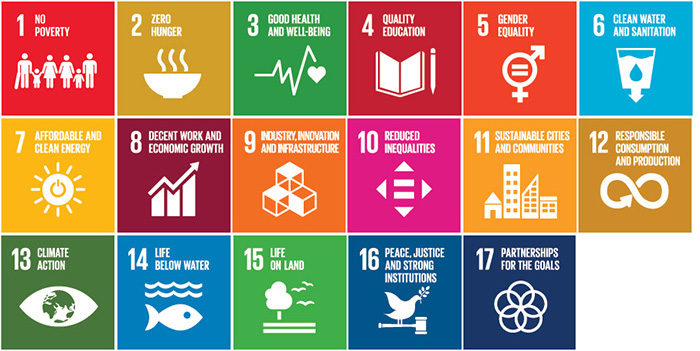
Download the Background Guides:
UPPER ELEMENTARY MIDDLE SCHOOL
Agenda Item 23.B
Women in development
Women in development means looking at how women are affected by financial, environmental and social problems. Women have the same human rights as men. But, the rights of women are not always protected. Also, many women are at a disadvantage because of gender inequality, stereotypes and social norms. With your fellow delegates you need to find a way to work towards making the following goals a reality.
- How can countries work together in order to protect the rights of women?
- What can states do to empower women?
- Culture, stereotypes and social norms play a role in treating women differently than men. What can states do to change how women are viewed in society?
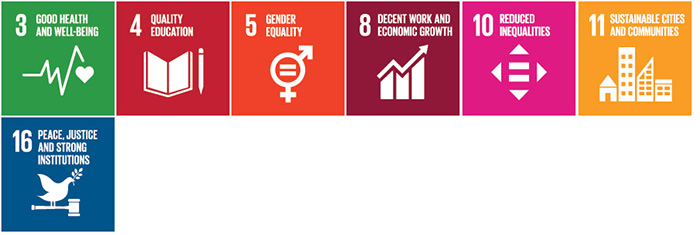
Download the Background Guides:
UPPER ELEMENTARY MIDDLE SCHOOL
ECOFIN ENVIRONMENT



Agenda Item 19.D
Protection of global climate for present and future generations of humankind
Climate change is an issue that is not only important to this generation but all future generations. States need to make decisions that reduce the danger of climate change right now. With your fellow delegates you need to find a way to work towards making the following goals a reality.
- How can developing states be protected from the effects of climate change?
- How can all states come to an agreement about how much carbon dioxide can be released into the environment every year? How can states be sure others will stick to the agreement?
- What can states do to adapt to the changes that climate change will bring?

Download the Background Guides:
UPPER ELEMENTARY MIDDLE SCHOOL
Agenda Item 19.F
Convention on Biological Diversity
Biological diversity is important to keeping the Earth healthy. Our environment is more interconnected with our activities than we know. With your fellow delegates you need to find a way to work towards making the following goals a reality.
- How can the environment and human activities co-exist in a way that supports each other?
- What laws or agreements can states allow in order to protect biodiversity around the world?
- How can states work together to protect ecosystems that are part of many states?

Download the Background Guides:
UPPER ELEMENTARY MIDDLE SCHOOL
Third Committee
Social, Humanitarian & Cultural
SOCHUM



This Committee relates to a range of social, humanitarian affairs and human rights issues that affect people all over the world.
An important part of the work of the Committee will focus on the examination of human rights questions. The Committee will hear and interact with special rapporteurs, independent experts, and chairs of working groups as mandated by the Human Rights Council.
The Committee discusses questions relating to the advancement of women, the protection of children, indigenous issues, the treatment of refugees, the promotion of fundamental freedoms through the elimination of racism and racial discrimination, and the right to self-determination. The Committee also addresses important social development questions such as issues related to youth, family, ageing, persons with disabilities, crime prevention, criminal justice, and international drug control.
Agenda Item 70.A
Elimination of racism, racial discrimination, xenophobia and related intolerance
Racism and intolerance are huge problems in our world. They stop people from enjoying their human rights. We need to do more to protect people and get rid of discrimination in our world. With your fellow delegates you need to find a way to work towards making the following goals a reality.
- How can countries work together to encourage other states to treat all people fairly and equally?
- How can countries work together to bring closure and healing for many of the racist acts done by countries in the past?
- How can more people learn about their rights under the Universal Declaration of Human Rights?
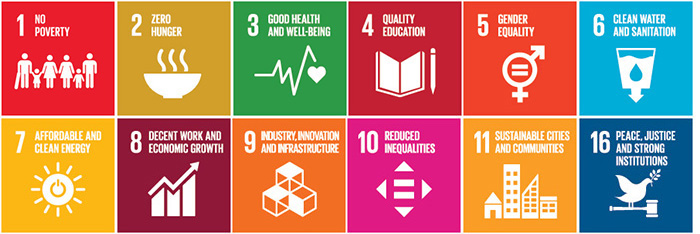
Download the Background Guides:
UPPER ELEMENTARY MIDDLE SCHOOL
Agenda Item 71
Rights of peoples to self-determination
Self-determination is a complicated issue because it can endanger a country’s territory if people want to break away and start their own country. With your fellow delegates you need to find a way to work towards making the following goals a reality.
- How can countries support the rights of peoples to self-determination without upsetting the countries where those people live?
- What can states do to protect the rights of minorities so that they do not end up wanting to leave the country (and start a new one)?
- If a group of people want to separate from a country and start their own, how can states help make it a peaceful transition?

Download the Background Guides:
UPPER ELEMENTARY MIDDLE SCHOOL
Fourth Committee
Special Political and Decolonization Committee
SPECPOL



This group works on special topics. It used to help colonies get independence. By 1990 most colonies were independent. For this reason, it added “Special Political” to its name and began to look at other issues not covered by other committees.
There are 17 non-self-governing-territories. These are areas of the world under the control of a state but not strictly part of that state. Some examples are Bermuda, Western Sahara, and Guam. Every year this group discusses what should happen with these areas.
The “Special Political” part of this group looks at other questions that do not fit in the other committees. They look at issues affecting Palestinian refugees, atomic radiation and how to use space for peace. Also, they discuss the topics of peacekeeping, land mines, and public information. The University for Peace is also on their agenda.
Agenda Item 52.A
International cooperation in the peaceful uses of outer space
Space begins at the border of Earth’s atmosphere. The Outer Space Treaty states that space is for all states. No country can claim anything in space – it is for all of humanity to share. With your fellow delegates you need to find a way to work towards making the following goals a reality.
- How can developing countries be supported so that they have access to space?
- What can countries do to ensure that space remains a peaceful place? How can we keep weapons out of space?
- How can states work together better to explore space, share technology, and information?

Download the Background Guides:
UPPER ELEMENTARY MIDDLE SCHOOL
Agenda Item 62
Implementation of the Declaration on theGranting of Independence to Colonial Countries and Peoples
Colonialism is when one state directly controls another state. It rarely has a positive effect on a region. This is mainly because the people living there do not have a say in their government. With your fellow delegates you need to find a way to work towards making the following goals a reality.
- How can states help support colonial countries and peoples so they can become independent?
- What should be the course of action if a non-self-governing territory does not want to become its own country?
- How can states come to an agreement on what places should be considered a colony or not?

Download the Background Guides:
UPPER ELEMENTARY MIDDLE SCHOOL
Sixth Committee LEGAL

This group focuses on legal questions. The UN wants all states to agree to international laws. This can happen if they make them together. They also want to make sure people know the laws. This can happen if they are written down and published. This makes it easier for states to work together. It also stops wars from happening. They also ask states to make laws to protect citizens.
Every year the General Assembly gives this group a discussion list. If the legal question is difficult or complex this group asks for help from the International Law Commission. This committee has a tradition of consensus. States reach agreement without having to take a vote. This makes sense because if you want everybody to follow a law they should agree it is a good idea.
This group works closely with the International Law Commission. They passed resolutions on international terrorism, human cloning, and taking hostages.
Agenda Item 82
Expulsion of aliens
In a global world people are traveling, immigrating, and coming to more countries than ever before in history. With your fellow delegates you need to find a way to work towards making the following goals a reality.
- What are the rights all aliens should have when they come to a country that they are not citizens of?
- Can countries come to an agreement on how aliens should be treated when a state wants to take them out of a country?
- How should a country handle a situation when a person has more than one citizenship?

Download the Background Guides:
UPPER ELEMENTARY MIDDLE SCHOOL
Agenda Item 87
Responsibility of International Organizations
In a global world International Organizations will be more and more involved in many aspects of the world. This is because global problems near global partners to solve them. With your fellow delegates you need to find a way to work towards making the following goals a reality.
- How can law decide who is responsible for the negative actions of an international organization?
- What are possible punishments for international organizations that break the law or cause harm to someone?
- How can states make sure that international organizations are responsible and do their best to not cause harm and are honest about their actions?
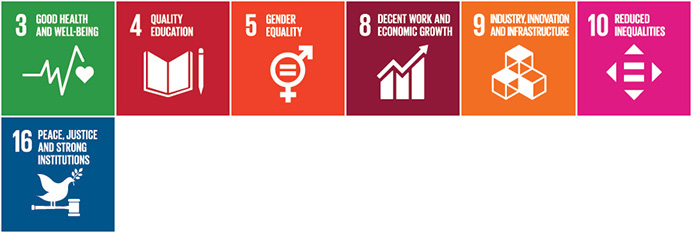
Download the Background Guides:
UPPER ELEMENTARY MIDDLE SCHOOL
Security Council



This is a special part of the United Nations. The UN created this group to try to protect peace. They decide what is a danger to peace. There are 15 members of the Security Council: 5 are permanent and 10 change every two years. The permanent members are China, France, Russia, United Kingdom and the US. The other members are Bolivia, Côte d’Ivoire, Equatorial Guinea, Ethiopia, Kazakhstan, Kuwait, Netherlands, Peru, Poland and Sweden.
This group helps peace in several ways. They ask states to solve problems peacefully. They also advise states to do something different or offer ways to resolve the situation. If a problem becomes bad the Security Council recommends sanctions. This means other states will punish the country in a non-violent way. An example might be not buying the country’s products or not allowing a country’s sports teams to compete internationally. If things get really bad the Security Council recommends the use of force to bring back international peace and security. All the states of the UN must follow what the Security Council decides.
All the permanent members of the Security Council get a veto. This means no resolutions can pass unless all the permanent members agree. All the other members get one vote. They have passed resolutions on peacebuilding, the situation in Western Sahara, and starting peacekeeping operations.
The situation in the Great Lakes region (Africa)
The Great Lakes region in Africa suffers from violence whose root cause is poverty and unsuccessful governments. The countries inside this zone are Tanzania, Zambia, Republic of Congo, Central African Republic, South Sudan, Kenya, Sudan, Burundi, Uganda, the Democratic Republic of the Congo (DRC), and Rwanda. The borders between these countries are not closed. In fact, in many places people can cross the border illegally. When Europeans colonized Africa, they did not pay much attention to the systems of government, relationships, or traditional boundaries of the area. The borders of countries cut through whole groups of people and an ethnic group can be spread throughout 2 or more countries. Therefore, if an ethnic fight happens between two groups in one country it can spread to a neighbouring country quickly.
With your fellow delegates you need to find a way to work towards making the following goals a reality.
- How can world governments help stop armed groups and reduce violence in the Great Lakes region?
- How can states support other countries in developing democratic, peaceful and successful governments?
- How can world governments help improve the economic situation in the Great Lakes region?

Download the Background Guides:
UPPER ELEMENTARY MIDDLE SCHOOL
Non-Proliferation: Democratic People’s Republic Korea
North Korea is a state that does not usually follow international law. It has spent the last several years developing nuclear weapons. With your fellow delegates you need to find a way to work towards making the following goals a reality.
- How can countries stop North Korea from developing nuclear weapons and other weapons that threaten the region/world?
- What can countries do to encourage North Korea to help millions of its people who are suffering?
- What is the best way of using sanctions and other non-violent incentives to get North Korea to commit to denuclearization?
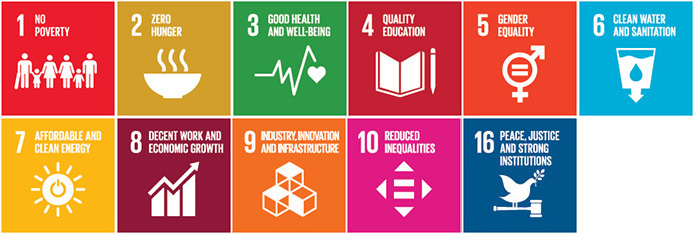
Download the Background Guides:
UPPER ELEMENTARY MIDDLE SCHOOL
Food and Agriculture Organization of the United Nations
FAO


FAO – The Food and Agriculture Organization (FAO) is a specialized agency of the United Nations that leads international efforts to defeat hunger.
Their main goal is to achieve food security for all and make sure that people have regular access to enough high-quality food to lead active, healthy lives. The organization is focused on helping countries develop strong policies to support stable, sustainable agriculture.
The most important functions of the FAO are to:
- Promote the common welfare and raising levels of nutrition and standards of living of the people around the world
- Improving the production and distribution of all food and agricultural products
- Improving the condition of rural populations
- Contributing to an expanding world economy
- Ensuring humanity’s freedom from hunger

Food Security for All
Download the Background Guides:
UPPER ELEMENTARY MIDDLE SCHOOL
Fair Trade Policies to Defeat Inequality Worldwide
Download the Background Guides:
UPPER ELEMENTARY MIDDLE SCHOOL
United Nations Office on Drugs and Crime
UNODC

UNODC – United Nations Office of Drugs and Crime (UNODC) is a global leader in the fight against illicit drugs and international crime. Established in 1997 through a merger between the United Nations Drug Control Programme and the Centre for International Crime Prevention, UNODC operates in all regions of the world through an extensive network of field offices. UNODC relies on voluntary contributions, mainly from Governments, for 90 percent of its budget.
UNODC is mandated to assist the Member States in their struggle against illicit drugs, crime, and terrorism. In the Millennium Declaration, Member States also resolved to intensify efforts to fight transnational crime in all its dimensions, to redouble the efforts to implement the commitment to counter the world drug problem and to take concerted action against international terrorism.
The three pillars of the UNODC work programme are:
- Field-based technical cooperation projects to enhance the capacity of Member States to counteract illicit drugs, crime and terrorism,
- Research and analytical work to increase knowledge and understanding of drugs and crime issues and expand the evidence base for policy and operational decisions,
- Normative work to assist States in the ratification and implementation of the relevant international treaties, the development of domestic legislation on drugs, crime and terrorism, and the provision of secretariat and substantive services to the treaty-based and governing bodies.
Preventing the Distribution of Fake Medicines
Download the Background Guides:
Addressing Cybercrime to Protect Election Legitimacy
Download the Background Guides:
Additional Resources
2019 NYC February Conference Upper Elementary Matrix
2019 NYC February Conference Middle School Matrix
2019 NYC March Conference Upper Elementary Matrix
2019 NYC March Conference Middle School Matrix
2019 Chicago Conference Upper Elementary Matrix
2019 Chicago Conference Middle School Matrix

